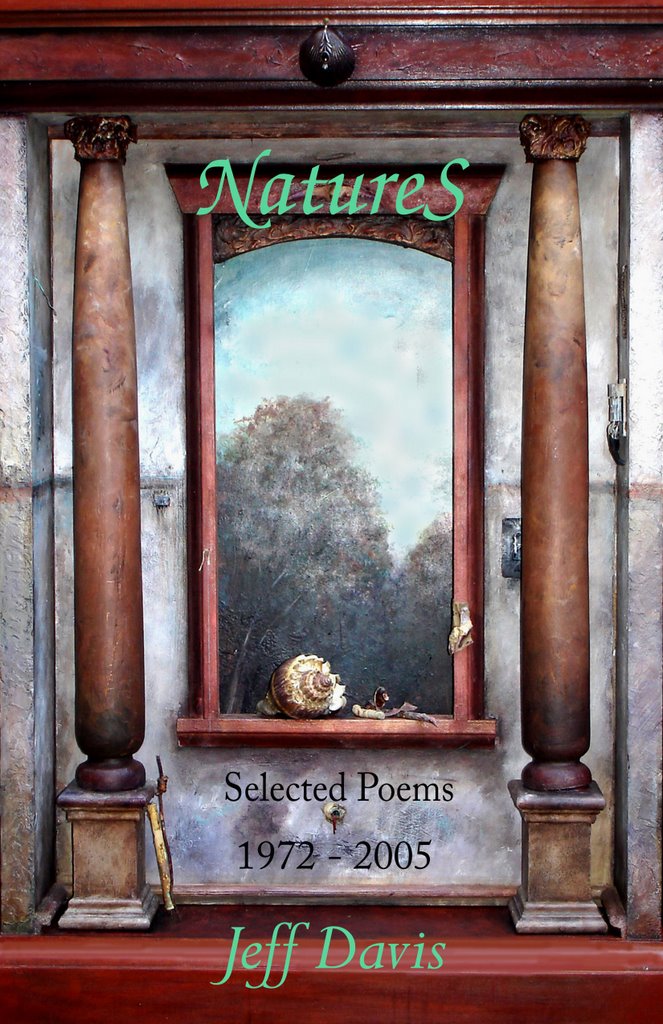Last fall's
Spirit of Black Mountain College festival at Lenoir-Rhyne University had many pleasures; one of the greatest, for me, was hearing new work by the very fine poets assembled there, some of whom I hadn't seen in years. When imaginations so inventive gather, one expects surprises. And
there were surprises galore, indeed.
No one's work surprised me more, though, than that of Thomas Meyer. One of the events drew him, Lisa Jarnot, and me together for a performance at the Belk Centrum, and when Lisa followed Thomas to the stage after his reading, she said simply "That was a great poem." It had been stunning; some momentary voice in my consciousness was certainly glad I didn't have to follow it.
The audio of that memorable occasion will someday be available, I am promised, and when it is I'll play it for your amusement, Gentle Reader, and your delight.
Not willing to wait for that day to hear the work again, though, last week I headed over the ridges and visited Tom in Scaly Mountain, at Skywinding Farm, the home he shared for many years with
Jonathan Williams, to record a conversation and a reading of the poems he'd brought to Hickory. Tom's a consummate host, of course, so it was after lunch and coffee that we pushed the dishes aside, I booted the trusty laptop, set up the mics, and we recorded what became
Sunday's show.
And it's quite a show - not because of any contribution on my part to the conversation, but because Tom read much more than the work that had caught our ears last fall. That piece, now titled "Kintsugi", after the Japanese technique of repairing broken ceramics with gold, proved to be the first movement of a suite of three poems, and he read all three, including the companion pieces "Endings"
and "Open Window".
Tune in, and you'll find yourself embarked on a remarkable journey.
The music for the show suggested itself during our conversation. The show opens with the polyrhythmic "
Abimenijoe", a Balinese Gender Wayang recorded in September, 1941, by the
Fahnestock South Sea Expedition, just before the Pacific world was roiled into a different epoch by World War II; the first break features "Come Into Leaf, Thou Forest", a choral work by
Le Mystere Des Voix Bulgares from their 1988 release,
A Cathedral Concert; the second break features an excerpt from Debussy's "Prelude to the Afternoon of a Fawn", performed by Leonard Slatkin and the St. Louis Symphony Orchestra; and the show ends with the Swedish-Norwegian chanteuse from North Dakota, Peggy Lee, singing with the Benny Goodman Orchestra on their 1941 single "
Where or When" - which fades, after my goodbye-for-this-week routine, into a solo piano version of the song by Dave Brubeck.
Oh, and not that it matters in the great scale of things, but my contributions to the conversation sometimes sound as though they are emerging from the bottom of a well. It seems that one of the mics I was using had gain problems that I didn't notice during the recording; fortunately, it was mine, and not Tom's. It's one of the hazards of field recording that there are no do-overs, no second takes after the fact. The event has ended, it's location a hundred miles back down the road. I fixed the imbalance between the two channels as best I could, but, as is often the case, the repair has left its own artifacts. Sometimes you'll just have to imagine that I'm actually there, in the same room, five or six feet from Thomas Meyer, talking with him about poetry on a sunny February afternoon, whatever your ears seem to tell you.
~~~~~~~~~~~~~~~~~~~~~~~~~~~~~~~
Update: Previous posts on Tom are here and here; both deal with his translation of the daodejing
; another post deals with his previous appearance on Wordplay (you'll find a link to that show in the Wordplay catalog). Or click on the label to get the full trove of posts that refer to Tom and his work.Labels: Kintsugi, Lisa Jarnot, Spirit of BMC, Tom Meyer, Wordplay




